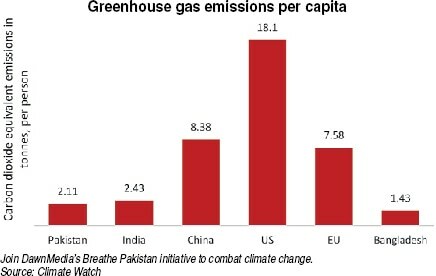The eight-year-old bill that sought to change the very shape of the country’s seed sector, and later of the agriculture sector itself, has at last been passed by the National Assembly.
The passage of the Seed (Amendment) Act, 2014 by a poorly-attended NA session on March 16 went almost unnoticed by the media. Many came to know about the important development only through statements of the farmers organisations strongly criticising the new law which they believe would bring to an end the age-old practice of re-using the seeds from the previous produce by the farmers and compel them to purchase seed every season, from the registered companies, thus raising the cost of production. It will now go to the Senate for passage. Another similar draft bill, Plant Breeders’ Rights Bill, is expected to follow.
The bill which amends the 1976 Seed Act had to traverse a long but an unpleasant journey. It was approved by the federal cabinet in 2007 but remained frozen for two years. It was re-approved by the cabinet in 2009 and was introduced in the National Assembly on January 11, 2010. The bill was referred to the standing committee concerned. There it remained unattended for three years and could not be passed owing to dissolution of the national legislature on March 17, 2013 because of fresh general elections.
The bill was again sent to the federal cabinet’s consideration and was approved on May 15, 2014 for the third time and introduced in the NA for the second time on August 8. It was passed by the NA standing committee on food security on October 16. However, it took another four months to be taken up by the National Assembly on March 16, 2015 but before the bill could suffer any further delay it was put to vote and was passed the same day.
Under the new law, those seeking registration of a genetically modified plant variety will have to submit an affidavit declaring that the variety shall have no adverse impact on the environment, and on human, animal and plant life
During this period, major reforms suggested in the amended law had been subject of debate among the stakeholders both within the NA panel meetings, at public forums and also in the court hearings when a public interest petition was filed by the Kisan Board Pakistan in Lahore High Court in May last year.
The new seed law, in few words, reduces the public sector role and increases the private sector’s role in management of seed business in the country. What has irked the most the farmers bodies and civil society groups has been the unauthorised sale of genetically modified (GM) seeds in the country which, however, is the now being formally allowed under the new seed law.
The Textile Industries Division official stated in the court that nearly 85pc of the cotton sowed in Pakistan is Bt variety, mostly of unapproved varieties.
Here it is interesting to note the foreign office’s opposition to GM seeds as conveyed by Environmental Protection Agency DG Mohammad Khurshid during the proceedings of the public interest petition. While appearing on behalf of the federation on May 14, 2014, he said: “the Foreign Office has also conveyed its concern to the Climate Change Division that the subject of GM seeds is a matter of grave concern for national security and trade. It can be used as a biological weapon of mass destruction to destroy Pakistan’s major crops such as potato, wheat, rice, corn, cotton and vegetables through modified viruses, bacteria and other parasites.” The LHC had asked the federal government to stop giving licences for sale of GM varieties of cotton or corn seeds until a legal framework is put in place.
Under the new law, those seeking registration of a genetically modified plant variety will have to submit an affidavit declaring that it does not contain any gene or gene sequence involving terminator technology and a certificate from the National Bio-safety Committee to the effect that the variety shall have no adverse impact on the environment, and on human, animal and plant life. The decision about registration will be made after examining field data of two crop seasons trials in respect of bio-safety and performance.
In a ‘statement of objects and reasons’ attached at the end of the text of the amended law, federal minister Sikandar Hayat Bosan says that 1976 law had failed to fulfill the requirements of ‘modern seed industry’ and the capacity of the public sector has, over the years, been greatly reduced. Currently, the share of public sector in seed production and supply is only 15pc. Today, it is the private sector which is playing a stronger role in the development of seed industry. Therefore, the new law will allow private sector to play a major role, produce basic seed for its multiplication and certification and establish accredited seed testing laboratories.
It was in 1980s that the private sector entered the seed business. The first seed company was registered in 1981. The pace picked up in the 1990s. In 1994, the seed business was formally given the status of an industry and was granted stimulus associated with that designation. By 2000, 291 private seed companies had been registered. Four multinationals also established their Pakistan affiliates during the 1980s-90s. These included Monsanto (1984), Pioneer (1989), Syngenta (1991), and ICI Pakistan (1998). By 2012, there were 963 companies.
Published in Dawn, Economic & Business, March 30th , 2015
On a mobile phone? Get the Dawn Mobile App: Apple Store | Google Play














































